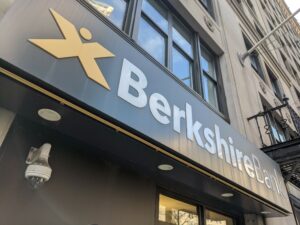With panelists participating in a Greater Boston Chamber of Commerce panel on racism calling for action to change the systems that allow racism and inequality to persist in the business community, Berkshire Bank’s Malia Lazu said business leaders still need to take time to listen and learn.
“Ill-informed action is not helpful,” said Lazu, Berkshire Bank’s executive vice president and chief culture and experience officer.
The GBCC brought together more than a dozen business leaders Friday morning for “Fierce Urgency of Now with Boston’s Business Leaders,” a 90-minute discussion offering perspectives on racism and how to move forward with actions the business community can take to address racism, diversity and inclusion. James Rooney, president and CEO of the GBCC, said more than 500 people had registered for the webinar.
State Street Corp. CEO Ronald O’Hanley, who spoke before the panel discussion, said evidence shows the importance of having diverse workplaces. He said organizations need to do more to work across cultures to help people advance in business, as well as give opportunities to vendors owned by people of color.
In pointing out the disproportionate effect of the coronavirus crisis on business owners of color and their Black and brown employees, O’Hanley called for successful business leaders to work with entrepreneurs of color, guide them on such issues as access to capital and legal issues and provide a bridge to help them get through the economic crisis.
Lazu pointed out the historical ties between Boston’s business community and racism, including banking’s funding of slavery and businesses profiting from cheap labor. She said the banking industry needs to understand that people of color are not the same, see the systemic racism underlying banking and take steps to refine risk profiles and underwriting standards to address the wealth gap and give business owners of color opportunities to succeed.
As a woman of color and community organizer, Lazu added, she was disappointed in the business community’s response of throwing money at the issue and having conversations without making a commitment to change.
“Learning, listening is a strong action if you’ve actually had to watch a man be lynched to be motivated,” Lazu said.
She also said that giving entrepreneurs access to capital helps to move them away from depending on grants for their business.
Panelists also talked about looking outside networks and the Greater Boston area to reach people of color. Paul Ayoub, past president of the Greater Boston Real Estate Finance Association’s board, said that efforts to diversify the board were initially met with skepticism that the industry had anyone to diversity to the board. He also said that even if companies are not hiring right now, conversations can still happen to get people of color in the pipeline for future opportunities.
Lazu added that hiring can be fraught if companies don’t have a culture ready for diversity initiatives.




 |
| 


